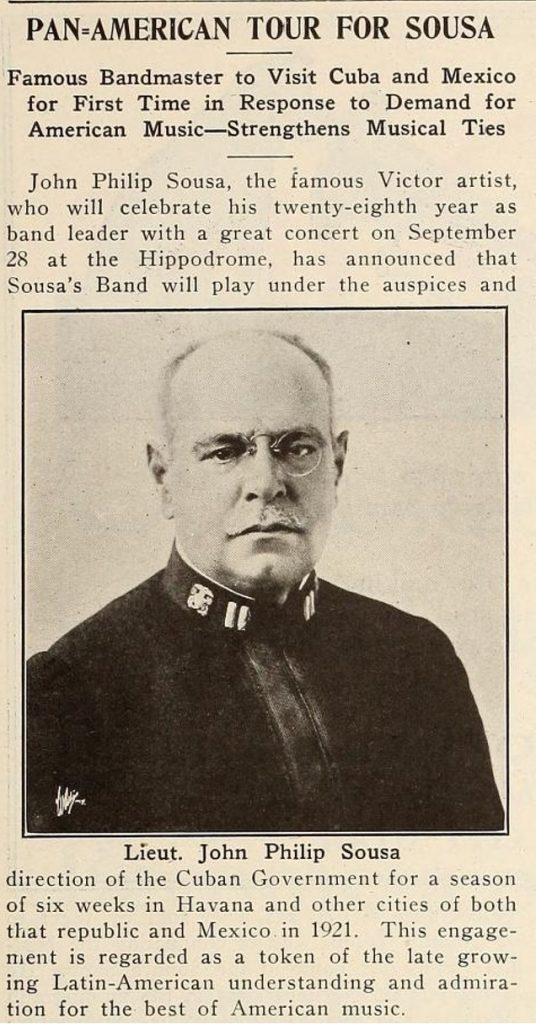
This source is from the 15 September 1920 edition of The Talking Machine World, a major phonograph trade publication in the early 20th century; specifically, the section in question is a short piece discussing (John Philip) Sousa’s Band’s upcoming South American tour.
At several points, the author (who is not identified) makes, or repeats, several comments that could be taken to indicate a certain U.S.-centric point of view, such when he quotes Sousa as saying that Latin Americans were a particularly “warm hearted and emotional people.” This claim may not seem especially negative on its own, and further praise in the quote suggests that it was not intended as such, but it does suggest a view of Latin Americans as fundamentally different from Americans. However, the most telling statement is the comparison at the end of the final paragraph between the tour (or its results) and the Monroe Doctrine: the former is being directly compared to a policy that had been used at various times as justification for U.S. intervention or interference in Latin American affairs.
“Their tour, it is declared, should go far towards cementing new ties of understanding, a sort of musical “Monroe Doctrine” of the fine arts in the Western Hemisphere.”[1]
[1] “The Talking machine world (July-December 1920).” Internet Archive, p. 606. (2013). https://archive.org/details/talkingmachinew16bill/page/n605/mode/2up